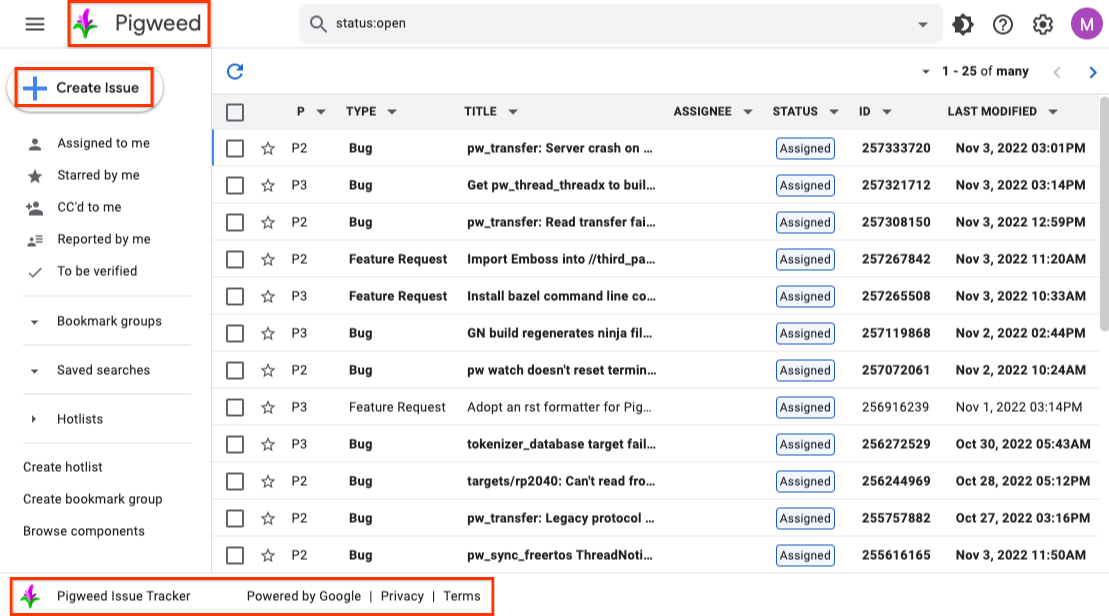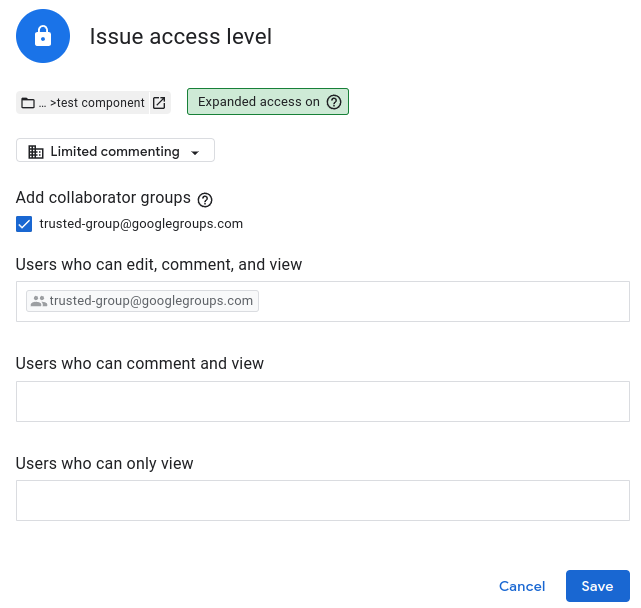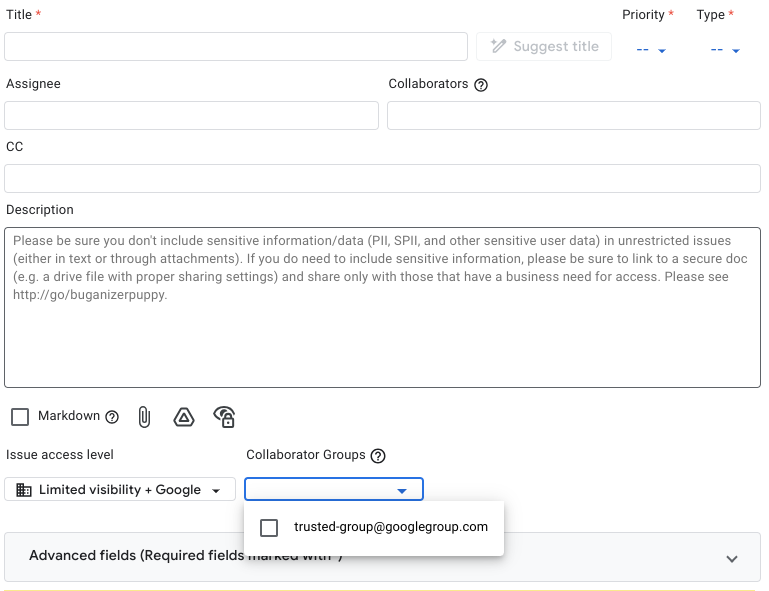跟踪器是一些开源项目使用的 Google 问题跟踪器的受限版本。跟踪器视图仅显示属于该跟踪器的问题和组件,让您可以专注于与项目相关的工作。跟踪器还可以使用专属网址、徽标和配色主题进行自定义品牌宣传。
功能
追踪器具有以下几项功能:
您可以通过自定义网域访问跟踪器。例如,您可以通过 https://issues.pigweed.dev 访问 Pigweed 跟踪器。
您会看到带有品牌信息的 Google 问题跟踪器实例。例如,Pigweed 跟踪器会显示 Pigweed 徽标和标题、开源主题按钮,以及带有 Pigweed 品牌信息的页脚。

跟踪器管理员可以配置可信的协作者群组。问题管理员可以通过问题访问权限限制对话框,将这些群组添加为问题的协作者:

或者,问题管理员也可以在“创建问题”页面上向问题添加可信的协作者群组:

从跟踪器访问非跟踪器问题
使用跟踪器时,您可以访问热门列表、已保存的搜索和书签分组。不过,由于系统不会显示跟踪器以外的问题,因此某些问题可能不会显示。
如果您查看的问题不属于追踪器,系统会将您重定向到追踪器之外。
![]()
查看追踪器信息
当您不在跟踪器中时,系统会针对属于跟踪器的问题和组件显示跟踪器条状标签。
![]()
![]()
当您在跟踪器之外查看跟踪器问题时,会看到一个横幅,其中包含用于在跟踪器中查看问题的链接。
![]()
您可以使用搜索栏中的 trackerid 字段按跟踪器搜索问题。
![]()
您还可以使用搜索构建器在跟踪器中搜索问题。
![]()
如需了解详情,请参阅: